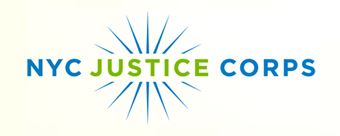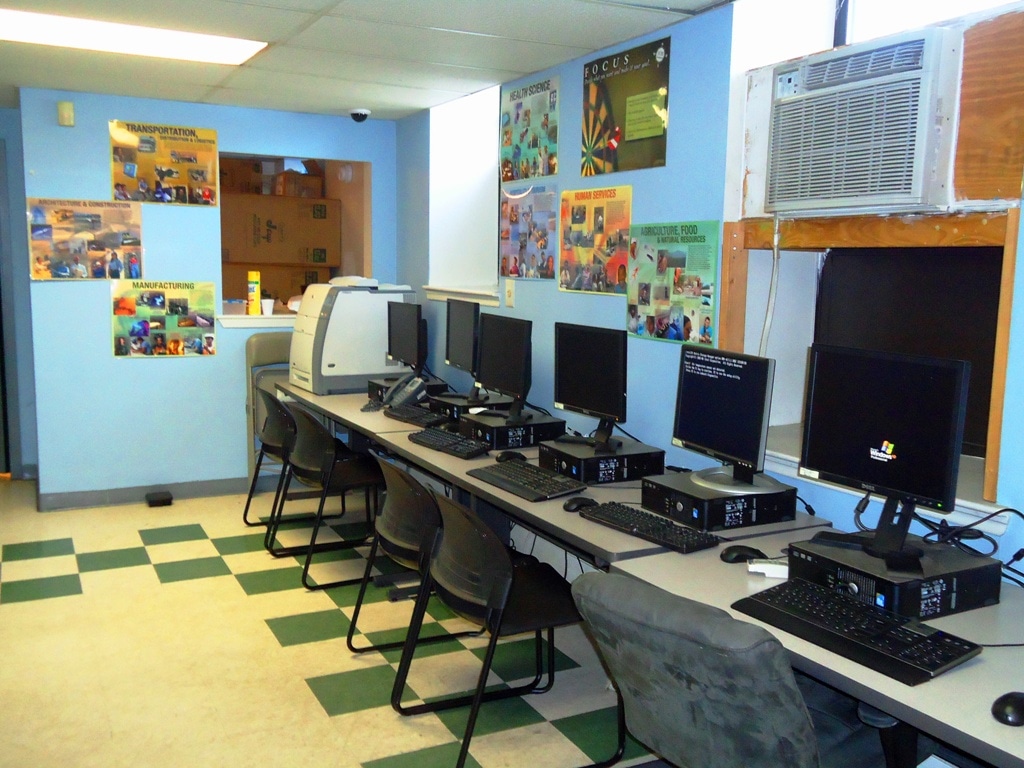Finding a steady job can be difficult for anyone who’s been involved with the court system, but it can be especially hard for a young offender. A jail sentence can disrupt a teen’s educational path and prevent the development of basic job skills and work experience most young adults gain in their early twenties. Without a resume, a high school diploma, or job market savvy, many young offenders are left with few options and return to the bad habits that landed them in trouble. Fortunately, there are programs like NYC Justice Corps to help these youth stay off the streets and improve their educational and employment outcomes.
The mission of NYC Justice Corps is straightforward, but the organization’s comprehensive programming touches many people in the communities the Corps serves. Participants in the Corps learn work readiness skills, gain hands-on job experience, can earn their GED or trade certification, and receive personal counseling and support. Corpsmembers acquire their hands-on experience by completing volunteer projects that benefit local churches, daycare centers, senior care facilities and other organizations in need of assistance. Essentially, Corpsmembers benefit from having a second chance to build a future, and other members of the community benefit from their service.

To be eligible to join the Corps, participants must be between the ages of 18 and 24 and must live within one of nearly 20 zip codes in Harlem and the Bronx. They also must be on probation or parole, have been released from jail or prison within the last year, or have participated in an alternative-to-incarceration program within the past year. Though some Corpsmembers once participated in illegal activities that hurt the South Bronx, the Justice Corps offers them a chance to give back to the community and show people that they’ve changed.
“A lot of these Corpsmembers are natural leaders, and it’s just all about how they funnel their energy. There are a lot of people out there who will follow you, so why not have them follow you to do something good?” said Juan Gonzalez, a Senior Site Supervisor at the Corps’s Fulton Avenue location in the South Bronx. “A lot of these kids could be counselors. They could be social workers. They could have active, positive lives instead of going around doing things they shouldn’t be doing. Everybody has something they shouldn’t be doing, but there’s always a point in your life when everything clicks and you realize ‘I need to stop doing this. I need to move forward.’ I’m hoping that our Corpsmembers who haven’t heard that click yet can get in tune with it. We can’t force them to change, but we can help.”
Juan is new to NYC Justice Corps, but he has worked in youth development for over 25 years. He has a great deal of experience working with homeless, runaway, and LGBT youth and has developed a passion for helping young people find their way. He likes how the model of the Justice Corps helps its young participants get on their feet through structured service projects that help the whole community. He hopes that these service projects help Corpsmembers build a connection with the neighborhood that leads them to want to stay, build a family, and continue to help local organizations grow and thrive.

Recently, Corpsmembers have helped manage the food pantry at a church that supplies food distribution efforts at other churches throughout the Bronx. On Mondays, Corpsmember pack over 200 grocery bags. On Tuesday mornings they help distribute the bags to people in the community. Wednesdays and Thursdays are when they unload food delivery trucks and prepare it to be picked up by representatives from some 80 other congregations. On Tuesdays, there is usually a long line, wrapped around the corner, of people in need of food assistance.
“This kind of giving involves working hand-in-hand with the community. You might even see someone who you know,” said Juan. “When our guys see that line around the corner, I hope something clicks and they think, how could you hurt a community that’s already hurting so much?”
Service projects, which might range from food distribution to mural painting and lawn maintenance, are only one aspect of the Justice Corps’ program. After Corpsmembers are recruited and enrolled, they have about one month of orientation and training. They then must complete about 10 – 14 weeks of community service projects. The final step of the six month process is a roughly two-month-long internship with an outside organization. Partway through the community service portion of the program, Corpsmembers undergo OSHA training that allows them to perform light construction work. They might help paint and plaster the exterior of a church, or put up new sheetrock walls in a daycare center.
“We just want to be visible in the community, through our work and through word of mouth from the organizations we work with. Just through word of mouth we get referred a lot and we’re pretty well known in the South Bronx,” said Andrew McKee, a former Corpsmember and current Site Supervisor who won a 2011 Corpsmember of the Year Award.
In his position as Senior Site Supervisor, one of Juan’s responsibilities is to do outreach and find more organizations in the Bronx that might benefit from the services of Corpsmembers. He knows there are plenty of churches and community centers that would love to have a few helping hands – it’s now just a matter of making sure they’re aware of the program. Juan also envisions a future in which more young people know about the Justice Corps, too. Right now, many Corpsmembers are mandated to join the program or hear about it from a counselor. Elizabeth Murrell and Phillip Crosby are two examples of Corpsmembers who came to the program on a counselor or parole officer’s recommendation.
“When I came out of jail I was looking for something to do — something I could do with my time that would help me stay out of trouble, stay off the streets. And then I found out they were paying here. I can get my money and do something with myself, and possibly get something in the end. So it was perfect,” said Elizabeth. “I never actually had a job before, so being here and getting some experience has been really helpful. They taught me how to organize and how to dress and how to act in the business world.”

Computers in the former NYC Justice Corps alumni center. Corpsmembers can use the Computers on Fridays or during downtime. The Site Supervisors hope to install software on the computers that can help Corpsmember learn basic office skills.
Elizabeth and Phillip are part of the same cohort, but they participate in slightly different programming. Elizabeth spends some of her days in the field working on service projects and some of her days in the classroom working towards her GED. Phillip, who came into the Corps with a bachelor’s degree from John Jay College of Criminal Justice, spends every day on the work site. Just as Elizabeth is studying for her GED, other Corpsmembers spend some of their days at Bronx Community College where they work to become certified plumbers or electricians. On Fridays, all Corpsmembers work with counselors to prepare their resumes and plan their next steps. Fridays are also when they participate in mock interviews, receive job training, and have a chance to meet with a psychiatrist.
At the end of the six month program, Elizabeth hopes to have her GED and be able to pursue a hands-on career in construction. Phillip hopes to pursue a trade, but he has yet to decide which specific field he wants to enter.
“Before the end of the six months even comes, we’re supposed to already have our foot in the door at an internship or a job. Basically they help us throughout the six months so that before we graduate we’re supposed to already know what we’re going to do. They help us, but it’s on us to make the initial steps,” said Phillip. “This whole program prepares you for an actual job, for the real world. What you’re doing here, you could be doing the same exact thing in a job.”
Both Elizabeth and Phillip say they’ve learned a great deal in the past couple months. Elizabeth says she’s brushed up on her math skills and has improved her communications skills. Phillip says he’s learned how to interview better and says he was surprised to learn about how organized and complex the church’s food distribution system is. Both Corpsmembers say they would recommend the program to other young people looking for a fresh start.
“It’s not a waste,” said Elizabeth. “You actually do something with your time while you’re here and you can benefit from it in the long run.”





































































